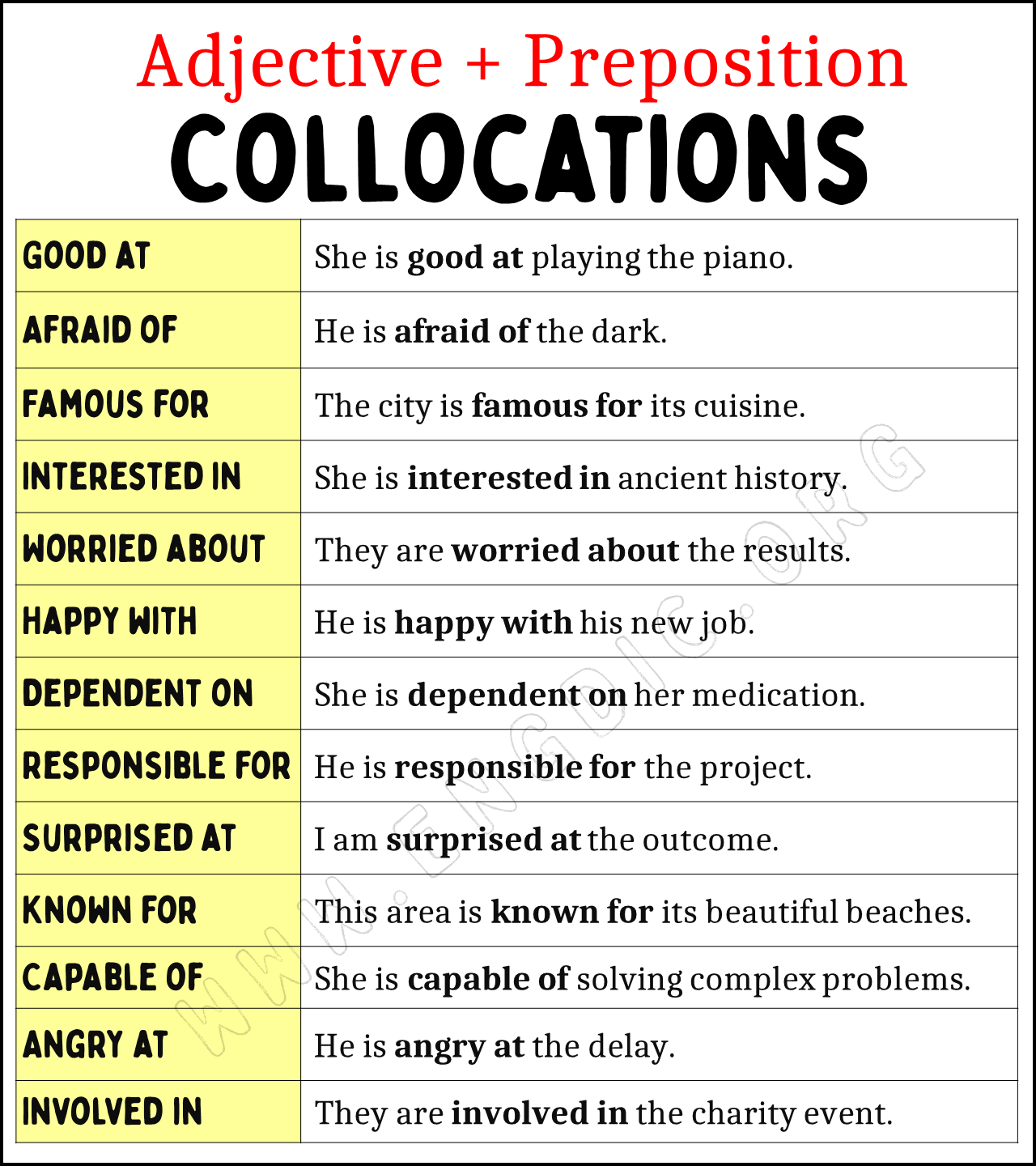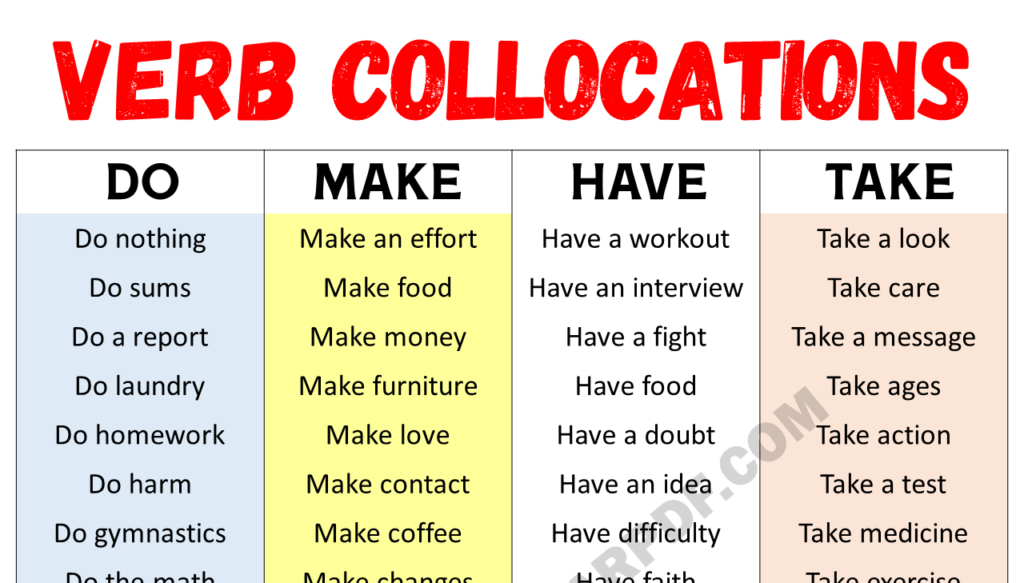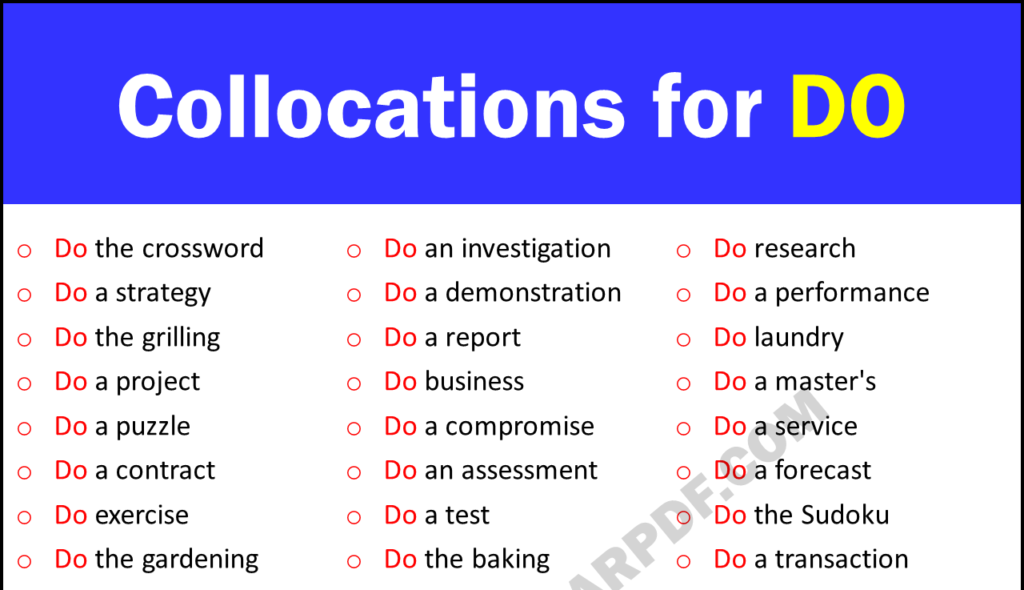Understanding adjective and preposition collocations is crucial for mastering English fluency. These combinations enhance your language proficiency and help convey precise meanings. In this blog post, we’ll explore the definitions and provide examples of common adjective and preposition collocations to boost your communication skills.
Definitions:
Adjective: A word that describes or modifies a noun, giving more information about the object’s size, shape, age, color, origin, or material.
Preposition: A word used before a noun or pronoun to show its relationship to another word in the sentence, indicating time, place, direction, cause, etc.
Adjective and Preposition Collocation: A common pairing of an adjective with a specific preposition that creates a phrase often used by native speakers to express particular ideas or relationships.
Adjective and Preposition Collocations
1. About
- Worried about – She is worried about her exams.
- Excited about – He is excited about the trip.
- Curious about – They are curious about the new project.
- Nervous about – She is nervous about the interview.
- Happy about – I am happy about the results.
- Sad about – He felt sad about the news.
- Angry about – She was angry about the delay.
- Pessimistic about – He is pessimistic about the outcome.
- Optimistic about – She is optimistic about the future.
- Concerned about – They are concerned about the environment.
2. At
- Good at – She is good at mathematics.
- Bad at – He is bad at cooking.
- Surprised at – I am surprised at your reaction.
- Amazed at – She was amazed at the view.
- Skilled at – He is skilled at negotiation.
- Angry at – They are angry at the decision.
- Happy at – She is happy at the news.
- Quick at – He is quick at solving puzzles.
- Slow at – She is slow at responding.
- Efficient at – He is efficient at managing time.
3. For
- Famous for – She is famous for her paintings.
- Responsible for – He is responsible for the project.
- Suitable for – This book is suitable for beginners.
- Known for – He is known for his generosity.
- Thankful for – She is thankful for your help.
- Grateful for – I am grateful for your support.
- Prepared for – They are prepared for the meeting.
- Eligible for – She is eligible for the scholarship.
- Sorry for – He is sorry for the mistake.
- Ready for – We are ready for the exam.
4. In
- Interested in – She is interested in art.
- Involved in – He is involved in community service.
- Rich in – This food is rich in vitamins.
- Poor in – The soil is poor in nutrients.
- Experienced in – She is experienced in marketing.
- Skilled in – He is skilled in carpentry.
- Deficient in – The diet is deficient in calcium.
- Successful in – They are successful in their careers.
- Proficient in – She is proficient in French.
- Fluent in – He is fluent in Spanish.
5. Of
- Afraid of – She is afraid of spiders.
- Capable of – He is capable of great things.
- Proud of – They are proud of their achievements.
- Tired of – I am tired of waiting.
- Fond of – She is fond of her cat.
- Jealous of – He is jealous of his friend.
- Aware of – She is aware of the risks.
- Full of – The jar is full of cookies.
- Accused of – He was accused of theft.
- Guilty of – She is guilty of the crime.
6. On
- Dependent on – She is dependent on her parents.
- Keen on – He is keen on football.
- Based on – The movie is based on a true story.
- Intent on – She is intent on winning.
- Focused on – He is focused on his studies.
- Hooked on – They are hooked on the show.
- Insistent on – She is insistent on the plan.
- Set on – He is set on his goals.
- Rely on – They rely on each other.
- Reflect on – She likes to reflect on her day.
7. With
- Happy with – She is happy with the results.
- Angry with – He is angry with his brother.
- Pleased with – They are pleased with the service.
- Satisfied with – She is satisfied with her job.
- Bored with – He is bored with the routine.
- Popular with – The game is popular with kids.
- Content with – She is content with her life.
- Annoyed with – He is annoyed with the noise.
- Impressed with – They are impressed with the performance.
- Busy with – She is busy with work.
8. By
- Surprised by – She was surprised by the gift.
- Shocked by – He was shocked by the news.
- Amazed by – They were amazed by the view.
- Disturbed by – She was disturbed by the noise.
- Encouraged by – He was encouraged by the support.
- Impressed by – They were impressed by the speech.
- Confused by – She was confused by the instructions.
- Moved by – He was moved by the story.
- Fascinated by – She was fascinated by the culture.
- Touched by – They were touched by the gesture.
9. To
- Accustomed to – She is accustomed to the weather.
- Addicted to – He is addicted to coffee.
- Allergic to – She is allergic to peanuts.
- Committed to – He is committed to his work.
- Dedicated to – She is dedicated to her craft.
- Devoted to – He is devoted to his family.
- Kind to – She is kind to animals.
- Polite to – He is polite to everyone.
- Rude to – She is rude to strangers.
- Important to – This is important to me.
10. For
- Grateful for – I am grateful for your kindness.
- Suitable for – This tool is suitable for the task.
- Known for – The city is known for its culture.
- Famous for – He is famous for his work.
- Ready for – She is ready for the challenge.
- Responsible for – He is responsible for the event.
- Thankful for – They are thankful for the opportunity.
- Prepared for – She is prepared for the exam.
- Qualified for – He is qualified for the position.
- Apt for – This place is apt for relaxation.



